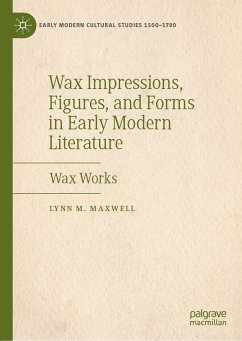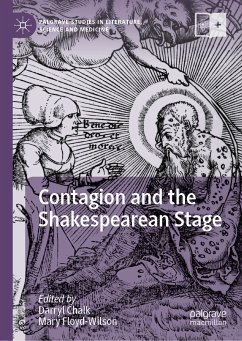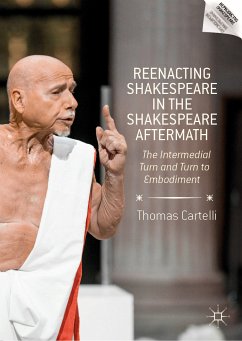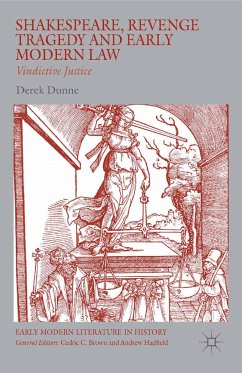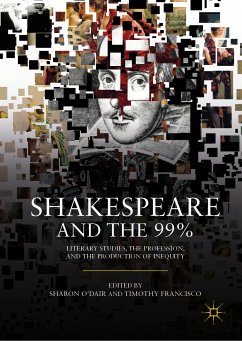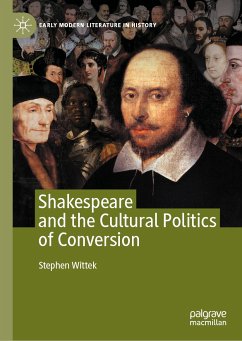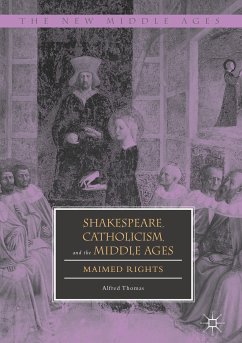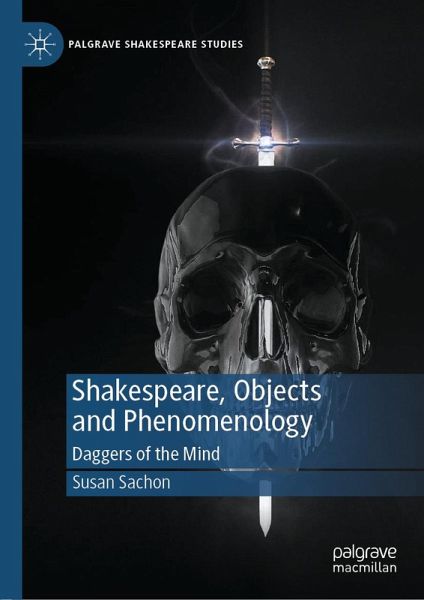
Shakespeare, Objects and Phenomenology (eBook, PDF)
Daggers of the Mind
Versandkostenfrei!
Sofort per Download lieferbar
72,95 €
inkl. MwSt.
Weitere Ausgaben:

PAYBACK Punkte
36 °P sammeln!
This book explores ways in which Shakespeare's writing strategies shape our embodied perception of objects - both real and imaginary - in four of his plays. Taking the reader on a series of perceptual journeys, it engages in an exciting dialogue between the disciplines of phenomenology, cognitive studies, historicist research and modern acting techniques, in order to probe our sentient and intuitive responses to Shakespeare's language. What happens when we encounter objects on page and stage; and how we can imagine that impact in performance? What influences might have shaped the language tha...
This book explores ways in which Shakespeare's writing strategies shape our embodied perception of objects - both real and imaginary - in four of his plays. Taking the reader on a series of perceptual journeys, it engages in an exciting dialogue between the disciplines of phenomenology, cognitive studies, historicist research and modern acting techniques, in order to probe our sentient and intuitive responses to Shakespeare's language. What happens when we encounter objects on page and stage; and how we can imagine that impact in performance? What influences might have shaped the language that created them; and what do they reveal about our response to what we see and hear? By placing objects under the phenomenological lens, and scrutinising them as vital conduits between lived experience and language, this book illuminates Shakespeare's writing as a rich source for investigation into the way we think, feel and communicate as embodied beings.
Dieser Download kann aus rechtlichen Gründen nur mit Rechnungsadresse in A, B, BG, CY, CZ, D, DK, EW, E, FIN, F, GR, HR, H, IRL, I, LT, L, LR, M, NL, PL, P, R, S, SLO, SK ausgeliefert werden.



